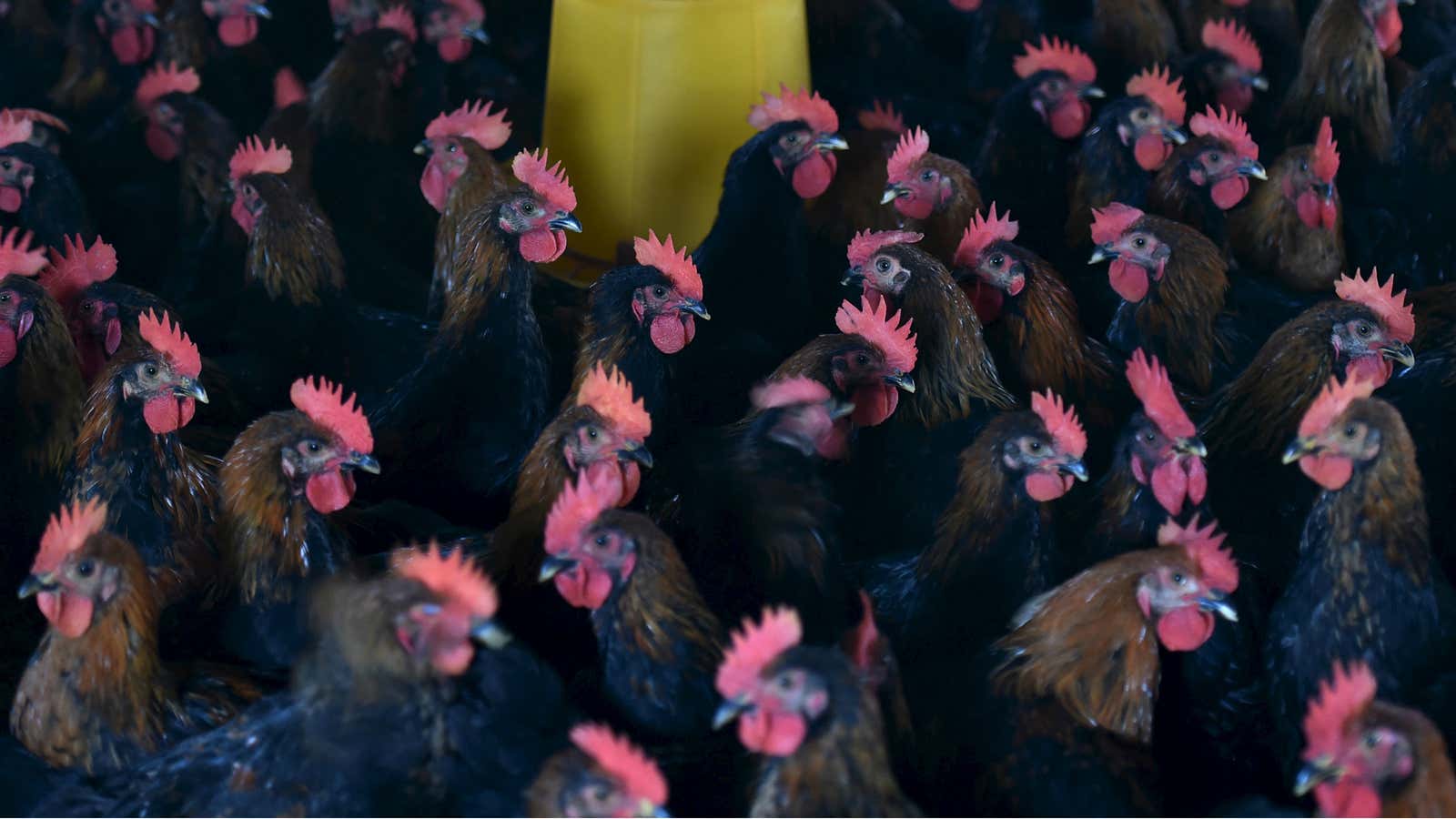The second-largest poultry company in the world announced today (Feb. 21) it would stop using antibiotics on its chickens by June 2017.
Tyson Foods, which slaughters more than 2.3 billion birds each year, made the announcement at a recent Consumer Analyst Group of New York conference in Boca Raton, Florida. The decision to end the use of antibiotics is expected to cover all of the company’s branded chicken products, as well as the NatureRaised Farms brand.
For years, companies have been working on ways reduce the amount of antibiotics they use on animals raised for human consumption, as leading scientists have concluded the practice has contributed to the emergence of human illnesses that are no longer treatable with common antibiotics.
Tyson Foods isn’t the first major US poultry company to go antibiotic free. Perdue Farms, the fourth-largest chicken producer in the US, has already made the switch. But the Feb. 21 announcement is important, as it makes Tyson the largest poultry company to commit to the switch. The decision comes at a time when market forces demand companies offer cleaner, fresher, more sustainable products.
“Certainly the conscious consumer today is holding us accountable,” said Tom Hayes, the president of Tyson Foods.
Large food companies are generally seeing growth among renovated products versus their overall portfolios, according to David Palmer, a food analyst with RBC Capital. Specifically, Palmer notes, “clean” food products have seen a 6% year-on-year sales increase.
Still, there are major players in the poultry industry who have refused to make a switch to using fewer antibiotics. The board of the third-largest US poultry producer, Sanderson Farms, earlier this month shot down a proposal to phase out the use of antibiotics that are important in human health.
And just how meat companies use antibiotics remains murky, as none of them are particularly transparent—none make that data public. What we do know, thanks to US Food and Drug Administration (FDA) data, is how much antibiotics the meat industry buys, and that suggests there’s no slowdown in the use of the drugs.
Gail Hansen is one of the veterinary scientists who’s been tracking antibiotic use in farm animals. While she was happy to see Tyson Foods’ announcement, she remains skeptical that companies, in general, are using fewer antibiotics when sales data don’t reflect that claim.
“You can say there were a million-and-a-half people at your inauguration, but when you look at the numbers it’s not supported,” Hansen said, comparing the gap between PR and reality in the meat industry to that in the White House kerfuffle over US president Donald Trump’s inauguration crowd size.
The FDA is expected to release antibiotic-use data broken down by animal type at the end of 2017. That data will reflect 2016 numbers.
